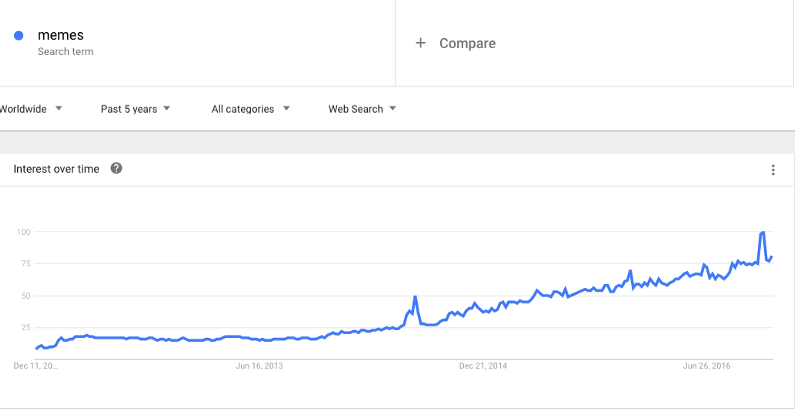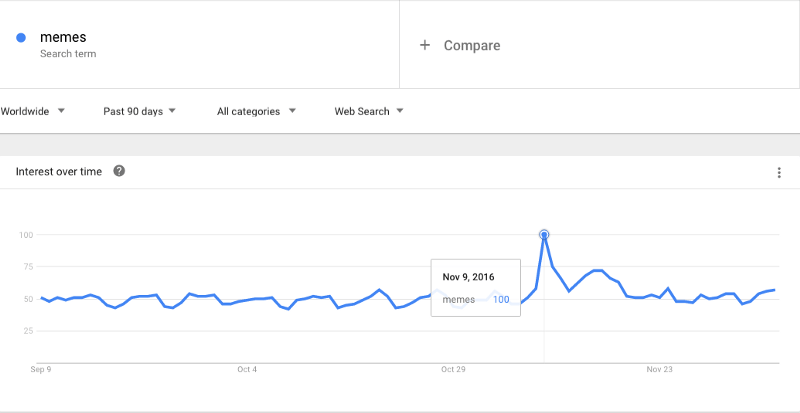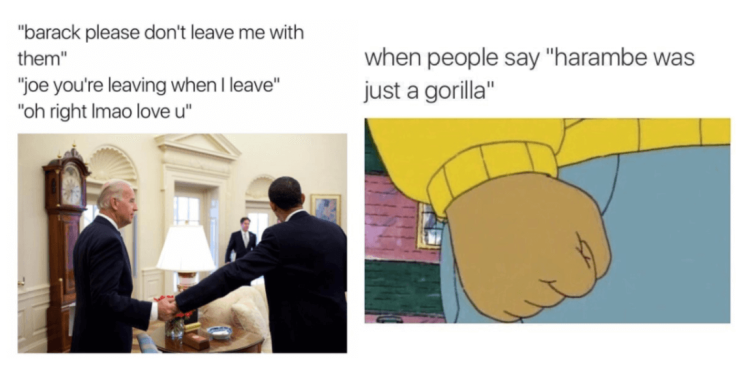Want smarter insights in your inbox? Sign up for our weekly newsletters to get only what matters to enterprise AI, data, and security leaders. Subscribe Now
When I wake up in the morning, the first thing I do is reach for my phone (surprise, surprise). For years, I had always found the same kinds of notifications, usually texts from my mom nagging me to call her, work emails from my boss, event reminders from my calendar, and funny Snapchats from my friends. But for the past year, I’ve been getting a new kind of notification — “X mentioned you in a comment” — otherwise known as a comment tag on a meme, one of those (funny) images with a (funny) caption.
Because I live in California and the majority of my friends live on the East Coast, by the time I’ve woken up, they’ve already tagged me in a few memes. Throughout the day, I can expect to get tagged in some more, and, of course, I tag my friends back as well. I find myself inadvertently smiling during a coffee break when I get tagged in a clever iteration of the Evil Kermit Meme or between meetings when I find a new Biden meme.
You’ve probably noticed the same. Facebook’s News Feed has become more of a Meme Feed. People post fewer statuses and photos but tag their friends in and share more and more memes. Gone are the days when our News Feeds were full of hundred-photo vacation albums or ordinary text statuses that were neither witty, controversial, nor emoji-less. Facebook has entered the Age of the Meme.

Above: Interest in the search term “meme” over past five years
How did we get here? How did memes take over Facebook? Well, it may have been inevitable that memes would conquer our News Feeds. After all, they had already been normalizing for years on smaller social media platforms, such as Twitter, Vine, and Reddit. But given its massive size, Facebook always was and is a different ball game, one that requires more time. We see this common sense rule in other industries, as well. For example, quinoa is everywhere nowadays, but quinoa first became widely popular at hipster farmer’s markets, then at Trader Joe’s and Whole Foods, until Walmart finally picked it up.
Facebook is the Walmart of social media. Memes just took longer to normalize on Facebook, the most mainstream social media, because of its size. But after reaching a critical mass of users and getting help from the News Feed’s algorithm and tagging feature that amplifies popularity, memes finally got to all of us on mainstream Facebook. And because we had already become somewhat familiar with them, we welcomed these newly normalized, hilarious additions to the world’s largest and most mainstream social network.
Since then, we’ve been perpetuating the spread of memes on Facebook because they are just so incredibly easy to create and share. Meme generators have made it simple enough for anyone to create a meme, with generators such as Imgur’s Meme Generator, the Mematic app, or even the Giphy Cam app. To share a pre-existing Facebook meme, you just click the share button, and it’s done. You don’t need to think of a funny caption like you do for a picture of yourself. You don’t need to add some (seemingly) insightful commentary, like you do for a news article. You don’t even need to add a relevant emoji. Sharing a meme is practically the laziest kind of Facebook post because there’s no need to create any kind of original content.
And why do we love tagging our friends as comments in meme posts? I think that it’s our passive and semi-public way of telling our friends that we are thinking about them or that we miss them. We want other people to see that we share these certain feelings with or about certain friends without drawing the attention of a dedicated post. Even when we tag our friends in a post that roasts them, it’s a way of showing affection.
But ultimately, I believe that the rise of Facebook memes is more than just the result of a conglomerate of algorithms and social media trends and tendencies. The most viral and successful memes get at something innately human. There’s a reason stressed-out college students share memes that poke fun at being unprepared for final exams or why new moms tag each other in memes that epitomize the unexpected hardships of parenthood. There’s a reason “meme” had a massive spike on Google search (from 58 to 100) between Election Day and the following day. We turn to comedic relief when times get hard, and the comedic relief is even better when we experience it with others.

Above: Interest in the search term “meme” spiked from 58 to 100 between Election Day (Nov. 8) and the following day
We feel comforted knowing that there are thousands or millions of other people who, like us, identify with a certain goofy image and laugh at it. Memes aren’t quite the escapism that the Great Depression generation got from persistent movie theater attendance nor do they truly provide the sense of belonging that the Baby Boomers felt from rock music culture, but I think that memes will be remembered as one of the hallmark cultural peculiarities that played a similarly comforting role in the current era.
Memes reassure us that everything will be okay, that we’re never alone, that we share common struggles and joys, that we’re all part of something. It doesn’t matter if you’re a fireman or a financier, Floridian or Finnish, fifteen or fifty — we can all laugh at the same meme of a fluffy Corgi puppy tumbling down the stairs. This is the beauty of Facebook memes. In an era when we all seem so divided, we’re reminded that we’re still connected somehow because we laugh together.
 At the end of the day, we’re humans, and humans were made to laugh together. And so we want to laugh, we love to laugh, and we will continue laughing (on Facebook) till the end.
At the end of the day, we’re humans, and humans were made to laugh together. And so we want to laugh, we love to laugh, and we will continue laughing (on Facebook) till the end.


